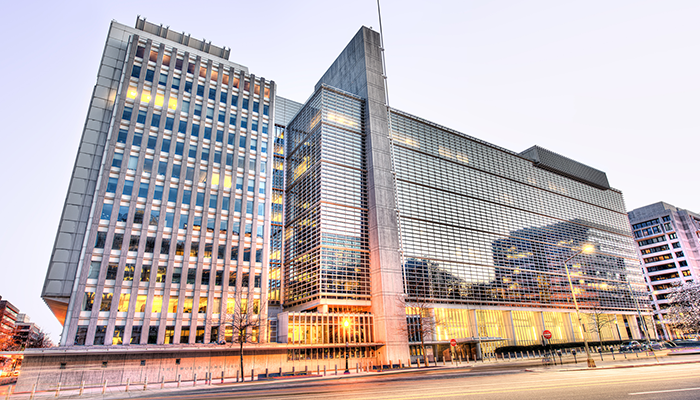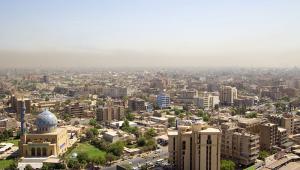web_world_bank_istock-817682226.png

Image credit: iStock
The World Bank Group announced yesterday that it has presented a crisis roadmap to its governors and board of executive directors in advance of a more detailed proposal set to be delivered by June.
The proposed ‘surge’ funding is aimed at tackling the rising cost of food, fuel, and fertilizer, which the WBG says is increasing hunger, malnutrition, food insecurity, and hardship for millions of poor people around the world.
However, the report said: “Compounding crises are creating a much more adverse, complex and challenging context for realizing the WBG twin goals, demanding sustained high-level client support.
“In this context, WBG finances would be strained by this 15-month response, since the 2018 capital package was sized to contend with one crisis every decade – not to respond to two large scale simultaneous crises plus an accelerating climate crisis.”`
It said that increasing financing to cope with the current crisis would negatively impact the bank’s ability to respond to any new crisis “or to help clients recover lost ground in their efforts to achieve their long-term development objectives including on the climate agenda”.
The WBG said it intends to prioritise an initial crisis response with around $50bn of spending between this month and June.
A fuller package to June 2023 would rely on frontloading existing envelopes totalling $150bn and new funding of $20bn, taking the total to $170bn.
However, the bank said that this response could reduce the amount of money available to deal with crises in 2024 and 2025.
Elsewhere in the report, the WBG said that the Covid-19 pandemic is estimated to to have set back gains in reducing global poverty by up to four years, putting 97 million more people in poverty in 2021.
Its initial research indicates that a prolonged war in Ukraine will lead to reductions in welfare for the average household in 43 out of 53 low income countries it has surveyed.
“Developing countries are facing multiple overlapping crises, including the pandemic, rising inflation, Russia’s invasion of Ukraine, large macroeconomic imbalances, and energy and food supply shortages. These are causing massive reversals in poverty reduction, education, health, and gender equality,” said World Bank Group President David Malpass.
“The World Bank Group will respond to these crises with impact, speed, and scale.”













